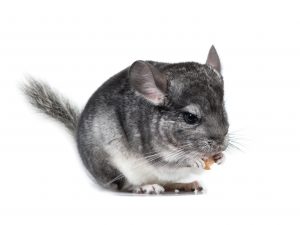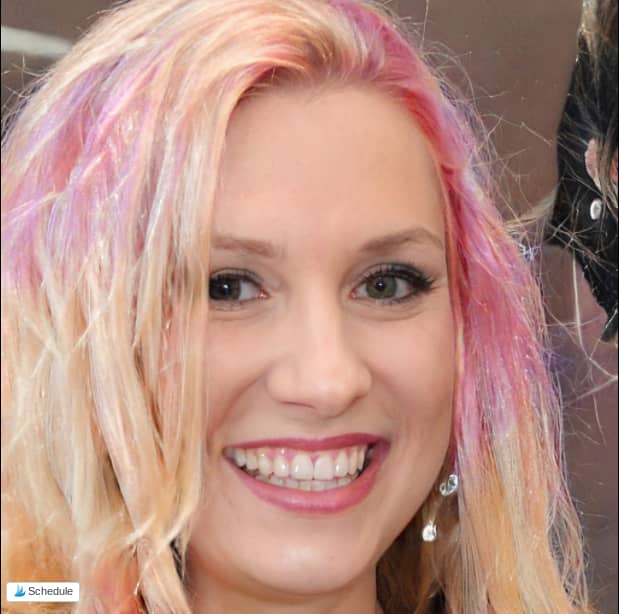Just like all other animals, chinchillas need good quality food to survive. The food has to be given in a timely fashion and should have wholesome nutrition that can fulfill your pet chinchilla’s required dietary requirements.
For a healthy domestic animal, you need proper food and a diet plan. Let’s look at some more information that is essential for chinchilla pet owners about pet food.
Chinchilla food options
So, for a chinchilla to have healthy digestion and be free of illnesses like dental disease and digestion troubles, you need to choose the best chinchilla food that is healthy and appetizing. Some common options for food items that every pet chinchilla owner needs to keep their chinchilla safe and healthy are listed below. Following a healthy diet will maximize your chinchilla’s lifespan.
- Hay: A chinchilla needs hay as part of a chinchilla treat to provide them with the necessary fiber source or roughage source. These exotic animals need fiber for their digestive health. They need fresh greens, clean and dry hay every day to stay healthy. Some good options for hay are Timothy hay, Alfalfa cubes, Orchard quality grass. Make sure to feed them in moderation. However, hay doesn’t have many disadvantages but avoid musty-smelling and discolored hay at all costs.
- Selecting the best pellets: How to select the best healthy pellet to keep chinchilla healthy? Well, make sure that the pellets that you choose are plain and without any additives like seeds, nuts, and dried fruits, as these can be harmful to their digestive health. Make sure not to give them unlimited pellets unless the chinchilla is lactating or juvenile. Moreover, buy a good quality pellet and excellent feed for your chinchilla.
- Greens: To avoid poor nutrition in your chinchilla, greens are required. There are lots of properties that these greens play in your chinchilla’s diet, such as increasing water intake, adding nutrients to their daily diet, and help with variety in their food. The greens that are essential in the diet for chinchillas include carrots, kale, and sweet potato. For the full list of chinchilla greens that you can feed your pet, it is best to know through your pet veterinarian or through the people at the pet shop.
(Source)
Feeding amounts

Along with the quality of good that you feed your pet chinchilla, the quantity is just as important. The pets need chinchilla vitamins and nutrients like Omega-3 fatty acids, folic acid, nicotinic acid, vitamin C, natural vitamin E, and many more through adequate nutritional content.
Food items that need to be provided to them continuously are hay and clean drinking water. Their access to water and hay or grass should be maintained in a way that they never run out. This acrobatic animal eats food with a sweet smell as they are very picky.
Another important thing that they eat is pellets. These exotic animals need chinchilla food pellets every day, a well but in a much more controlled quantity. Only a couple of tablespoons (1-2 tablespoons) of pellets should be given as daily amounts to a baby or adult chinchilla.
To be more specific, the diet should have 30% fiber, 16% protein, 35% carbohydrates, and the rest should be filled with fat, minerals, and sugar. As you know, chinchillas are plant-eating animals. They need to have variety in the boring food they eat while also getting all the nutritional requirements met.
They should be given very small amounts of chinchilla vegetables like carrots and leafy greens as healthy treats. The diet for chinchillas should be monitored to make sure they follow it daily. Following this diet routine is to make sure your chinchilla doesn’t turn into a malnourished animal. The most important thing is to provide chinchillas with additional water, especially in summer, and monitor their daily water intake. Again, although this is the common amount of food that your pet needs, you need to contact the pet veterinarian to be sure of ample amounts of food that your chinchilla needs.
Make feeding fun
To make sure that your pet eats food properly, you need to make the feeding time fun. You can do this by understanding how a chinchilla behaves and using that to your advantage.
As you know, chinchillas are very active, so they run around a lot. If a chinchilla is not active, it can in fact be bad for their health and cause an array of chinchilla health problems. So what should you do? Well, you should try to distribute the appropriate amount of food around their cage instead of handing them their feed in a bowl.
This will ensure that they look for it, as they had to look for the food in the wild. It will keep them active and give them the appropriate amount of pellets per day, hay, and other food items per day as well.
In addition to that, if you have two or more chinchillas, they can become quite protective of the feeding bowl, which can cause fights between the chinchillas, and also, one might eat more than the other. It is also better to distribute the food all over the cage to make it fun and much healthier for the domestic animal.
Treats
Now, let’s talk more about the healthy treats that you should feed these exotic animals. As you know, chinchillas are very sensitive animals, so you need to be very careful with what you feed them. They can easily get an upset stomach and have a limited capacity for digestion.
The treats that you choose to feed them should be done in very limited and controlled quantities. An overweight chinchilla is susceptible to many illnesses like diabetes, diarrhea, and liver damage. So the treats that you choose to feed them should be given only occasionally.
The treats that these exotic animals eat are dried rose hips, dandelion, and hibiscus leaves, basically dried fruits, and root vegetables should be given to them. Make sure to read the product form to know what you are getting when buying treats. The bottom line is, chinchillas don’t need treats, but if you feel bad or want your chinchilla to be happy, then you can give them treats occasionally. Just make sure that they are safe.
Hay supplementation
The diet that you choose to feed your chinchilla should mostly contain hay. Thankfully, nowadays, there is a variety of hay available so that you can choose the hay type that your chinchilla loves the most.
So, what type of hay do chinchillas eat? They can be offered much variety of good quality and clean hay like timothy hay, orchard grass, alfalfa hay, oat hay, or meadow hay. You can also feed them a mixture of all these hays. It should be bright green and smell fresh, or else it can be harmful to your chinchilla. Hay which is sweeter and has more nutrients, should be mostly given to young chinchillas and only occasionally to adult chinchillas.
Some owners are allergic to hay, so what should they do? There are chinchilla hay pellets and hay cubes available as well. These are usually made up of timothy or alfalfa hay, so you will have limited options to choose from. However, if you are allergic to hay, this is a great option as it greatly reduces the hay dust in your house, which reduces the allergic reaction that you might have to the hay.
What fruits and vegetables can chinchillas eat?
Fresh vegetables and fruits can occasionally be fed to your chinchillas, but only some of the fruit and vegetables your chinchillas’ digestive system can bear. So here is a list of fruits and vegetables that you can feed your chinchillas.
- Apple
- Carrots
- Sweet potato
- Kale
- Parsley
- Strawberries
- Pears
- Dandelion greens
- Celery
- Blueberries
- Raisins
- Turnip greens
- Grapes
- Collard greens
Make sure to cut these fruits and vegetables into small tiny pieces of cubes to feed them and know the proper quantity that they can handle through your pet’s vet.
Food that chinchillas can’t eat
There are a lot of food items that a chinchilla owner should never feed their pets. You have to be very careful with what you feed these animals, so here are some food items that you should never feed your chinchilla.
Although fruits and nuts are something that can be fed to chinchillas, it is best to avoid them. This is because fatty foods are very harmful to their digestive system. However, in this list are food items that you should absolutely not feed your chinchilla and if you do, then going to a vet is the best course of action.
- Cabbage
- Asparagus
- Avocado
- Corn
- Banana
- Lettuce
- Sunflower seed
- Spinach
- Rhubarb
- Peas
Of course, there are some other food items that chinchillas can’t eat as well, so it is best to ask a vet if you are unsure about the food item that you could feed your pet.
What treats do chinchillas like
Keeping in mind that chinchillas can’t eat fatty food, there are some treats that they like that contain fat, but chinchillas love them.
These are dried fruits, dried herbs, plantain, and root vegetables. You can give these things in moderation but make sure to avoid nuts and seeds as they are way too high in fat content.
You can give them raisins, carrots, sultanas, and basically all the things that were mentioned above in the list. Chinchillas love treats just like any other animal, but the treats can be deadly for them if you don’t know the proper way or amount to feed them.
Chinchilla diet dos and don’ts
There are some things that you should do to have a healthy chinchilla. Some dos and don’ts for having chinchillas as pets are listed below.
- Do have constant clean drinking water; if tap water is not clean, then have bottled water for your pet.
- Do have hay constantly as well; keep a rack with hay and replace it routinely before it gets moldy.
- Don’t give food that is meant for guinea pigs as they have different digestive systems.
- Don’t give rabbit pellets as, again, these two animals are quite different.
- Do take your chinchilla to the vet if it is vomiting or showing any unexplainable symptoms.
- Don’t make sudden changes in their diets as it can upset their stomach.
- Do make sure to feed them every day and check if their droppings are dry and normal.
- Don’t discourage your pet from eating its own dropping, as it is natural for them to do so.
In conclusion, make sure to feed your chinchilla with care and monitor their diets properly. They are very sensitive animals but can be great friends if you know how to take care of them.
Hi, my name’s Elena Coolidge, and this is my site. Chinchillas are so cute and such intelligent animals that make great pets. They’ve become the subject of fascination for many animal lovers who enjoy their antics. I blog about their care, where to buy them, breeders, and more. Shoot me an email if you have a question!
